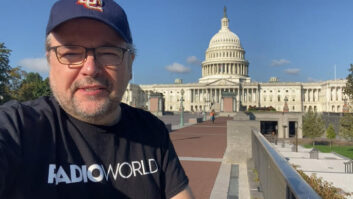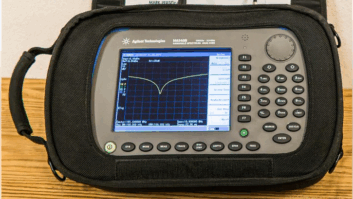The Flemish and Walloon regions of Belgium have reached a series of agreements on conflicts that existed over radio frequencies in the country.
The two provinces had been at odds for years but the introduction of a new frequency plan for Flanders in April to ready the region’s radio landscape for DAB+ seems to have brought Flanders and Wallonia closer together.

The first agreement, which took place in December, covers the coordination of broadcasting frequencies between the Flemish and Walloon regions and provides for resolution on the many pending legal disputes concerning frequency disturbance. This arrangement concerns the coordination of radio frequencies and also provides for the establishment of a global database and a method of calculating future frequency coordination.
The accord was subsequently followed by a cooperation agreement between the Flemish government, the Walloon government and the German-speaking Community government. According to reports, the federal government’s approval will follow shortly, while the parliaments of the communities also need to formalize this cooperation agreement by means of an assent decree.

“This cooperation agreement is crucial for the reform of the radio landscape in Flanders and for the further introduction of digital radio via DAB+ in our country,” said Flemish Minister of Media Sven Gatz. “I am pleased that, after so many years of disputes, we are proving that we can also work well together in our small country and illustrate that our federalism is mature.”
Additional cooperation settlements have also been carried out. Specifically, the Flemish media regulator, Vlaamse regulator voor de media, is now allowed to issue broadcasting licenses to Flemish radio broadcasters located in Vloesberg and Wavre (Wallonia), where DAB+ broadcasts for Flanders can be originated.
Meanwhile, the Walloon media regulator, Conseil supérieur de l’audiovisuel, can authorize radio stations situated in Flemish St. Peters-Leo to provide services targeting Wallonia. The Flemish and German-speaking regions also reportedly concluded a similar cooperation agreement over the use of FM frequencies in Brussegem, Flanders.
“The governments of the communities are reaping the benefits of years of work leading to the pacification of the Belgian radio landscape,” commented Minister Jean-Claude Marcourt. “Following the auctioning of the 800 MHz band, EUR 30 million is now flowing into the French Community. I will spend this on accelerating the transition to digital radio in the French-language media.”
[Read: RTBF Phases out AM Broadcasts]
Finally, Wallonia has also reached two cooperation agreements with the German-speaking community. The first ensures that both communities share frequencies as needed so stations can carry out their tasks properly. The second consists of the French-speaking community creating a frequency in Liège that is available to listeners in the German-speaking region, ensuring public broadcaster BRF can be heard by the audience there.
“The agreement gives the German-speaking community a clear guarantee of unquestionable radio frequencies, so that the German-speaking Belgians can also be informed in their mother tongue outside the borders of the German-speaking Community,” concluded Minister Weykmans of the German-speaking community.







